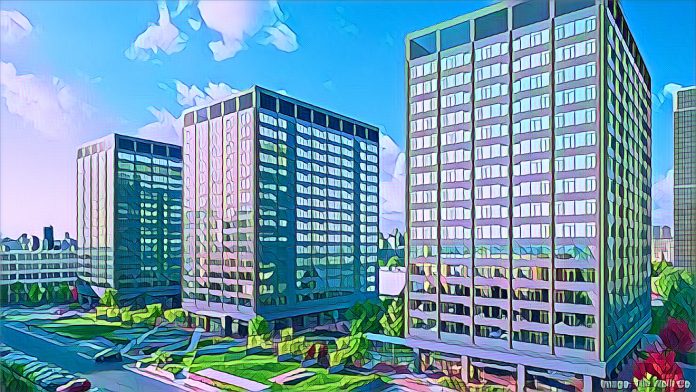As the global economy grapples with fluctuating dynamics and the aftermath of the COVID-19 pandemic, the real estate market, particularly in Nigeria, is witnessing a significant shift. Investors and property owners, especially those in the commercial sector, are increasingly converting office spaces, which have seen a decrease in demand, into residential housing and short-let apartments. This trend is a strategic response to the changing work patterns, economic pressures, and the evolving needs of urban populations.
In major Nigerian cities like Lagos, Abuja, Kano, and Port-Harcourt, the commercial real estate sector is facing challenges as a result of the increasing availability of unused or underutilized office spaces. This situation is propelled by the shift towards Work-from-Home (WFH) and hybrid work models adopted during the COVID-19 era, which have continued to persist due to operational challenges such as power and transportation costs. Consequently, many office buildings are left empty or barely occupied, prompting investors to seek alternative uses for these spaces.
The transformation of office buildings into mixed-use developments, encompassing residential units and short-let apartments, is emerging as a viable solution for recouping investments. This approach not only addresses the surplus of office space but also meets the growing demand for housing and flexible accommodation options in city centers.
One notable example of this trend is the 21-storey Unity House on Lagos Island, a project by Wemabod Limited, one of Nigeria’s leading real estate firms. Originally an office complex, Unity House is being repurposed into a mixed-use facility featuring one-bedroom and two-bedroom apartments, offices, retail centers, and banks. This redevelopment aims to cater to the premium upscale residential accommodation demand in Lagos Island’s foremost business district.
The decision to convert office spaces into residential or mixed-use developments is driven by a variety of factors, including the downturn in office rent and the diminishing profitability of shopping plazas in certain areas of Lagos Island. The conversion provides a creative solution to make these properties more lucrative and relevant to current market demands.
Experts in the field, such as Professor Austin Otegbulu of the University of Lagos and ‘Dotun Bamigbola, Chairman of the Research and Development Committee at the Nigerian Institution of Estate Surveyors and Valuers, have highlighted the economic and social factors contributing to the decline in demand for office spaces. They point to the continued preference for virtual work arrangements by many organizations, the impact of foreign exchange volatility, and the broader economic climate as key challenges facing the commercial real estate sector.
Moreover, the process of repurposing these properties is subject to physical planning regulations, underscoring the importance of compliance and strategic planning in such endeavors. Mixed-use developments, when executed with proper approvals and infrastructure, offer a sustainable and profitable alternative for investors navigating the complexities of the current real estate market.
This shift towards converting office spaces into residential and mixed-use developments is reflective of a broader trend in urban development, where flexibility, sustainability, and responsiveness to changing market dynamics are paramount. As cities evolve and the nature of work continues to transform, the real estate market must adapt to meet these new realities, ensuring that investments remain viable and properties continue to serve the changing needs of urban populations. This trend not only revitalizes underutilized spaces but also contributes to the vibrancy and diversity of city centers, offering new opportunities for living, working, and leisure in urban environments.



